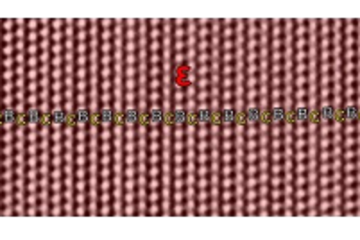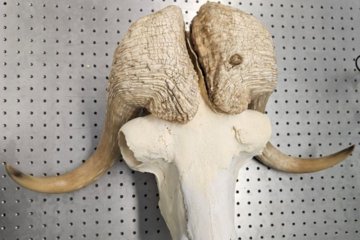All genres
121.
Talk
Kristallplastizität in martensitischen Mikrostrukturen. 4. Jahrestreffens des DGM-Regionalforums Rhein-Ruhr, Hydro Aluminium Bonn, Bonn, Germany (2016)
122.
Talk
Integrated experimental and simulation analysis of lattice defects and micromechanics in steels. Materials Modeling Colloquium, Universität Stuttgart, Stuttgart, Germany (2016)
123.
Talk
Numerically Robust Spectral Methods for Crystal Plasticity Simulations of Heterogeneous Materials. ECCOMAS Congress 2016, Crete, Greece (2016)
124.
Talk
Micromechanics using spectral method: Modelling of interface decohesion in polycrystalline microstructures. PETSc User Meeting, Vienna, Austria (2016)
125.
Talk
Crystal Plasticity Simulations on Real Data: Towards Highly Resolved 3D Microstructures. Seminar des Instituts für Mechanik, KIT, Karlsruhe, Germany (2016)
126.
Talk
Crystal Plasticity Simulations - Fundamentals, Implementation, Application. Micromechanics of Materials, Zernike Institute for Advanced Materials, University of Groningen
, Groningen, The Netherlands (2016)
127.
Talk
DAMASK Evolving From a Crystal Plasticity Subroutine Towards a Multi-Physics Simulation Tool. Focus Group Meeting “Metals”, SPP 1713, Bad Herrenalb, Germany (2016)
128.
Talk
On the usage of HDF5 in the DAMASK crystal plasticity toolkit. 2nd International Workshop on Software Solutions for Integrated Computational Materials Engineering - ICME 2016, Barcelona, Spain (2016)
129.
Talk
Not just Colorful Pictures: Visualization of Scientific Data. Düsseldorf Data Science Meetup, Düsseldorf, Germany (2016)
130.
Talk
Lath martensite plasticity. Seminar at ICAMS, Ruhr-Universität Bochum, Bochum, Germany (2015)
131.
Talk
High-Resolution crystal plasticity simulations of real microstructures. 9th GAMM Seminar on MultiScale Material Modeling, Kaiserslautern, Germany (2015)
132.
Talk
An atomistically-informed crystal plasticity model to predict the temperature dependence of the yield strength of single-crystal tungsten. XXV International Workshop on Computational Micromechanics of Materials, Bochum, Germany (2015)
133.
Talk
An atomistically-informed crystal plasticity model to predict the temperature dependence of the yield strength of tungsten. DGM AK Mikrostrukturmechanik, Karlsruhe, Germany (2015)
134.
Talk
Application of a Spectral Method Framework to Interrogate the Influences of Experimental Uncertainty on Crystal Plasticity. Materials Science & Technology 2015, Columbus, USA (2015)
135.
Talk
DAMASK: The Düsseldorf Advanced Material Simulation Kit for studying crystal plasticity using an FE based or a spectral numerical solver. Seminar of the Centro Nacional de Investigaciones Metalúrgicas (CENIM) del CSIC , Madrid, Spain (2015)
136.
Talk
Multiscale model of strength in single crystal tungsten under uniaxial and biaxial loading. 13th U.S. National Congress on Computational Mechanics, San Diego, CA, USA (2015)
137.
Talk
Spectral Method Simulation of High Phase-Contrast Materials: A Joint Numerical-Experimental Study. 9th European Solid Mechanics Conference ESMC 2015
, Madrid, Spain (2015)
138.
Talk
Spectral Method Simulation of High Phase-Contrast Materials: A Joint Numerical-Experimental Study. 12th International Conference on the Mechanical Behavior of Materials ICM 12
, Karlsruhe, Germany (2015)
139.
Talk
Multiscale model of strength in single crystal tungsten under uniaxial and biaxial loading. 1st Pan-American Congress on Computational Mechanics, Buenos Aires, Argentina (2015)
140.
Talk
Materials Simulation: Mechanisms and Processes. BMBF Wing Conference, Dresden, Germany (2015)











